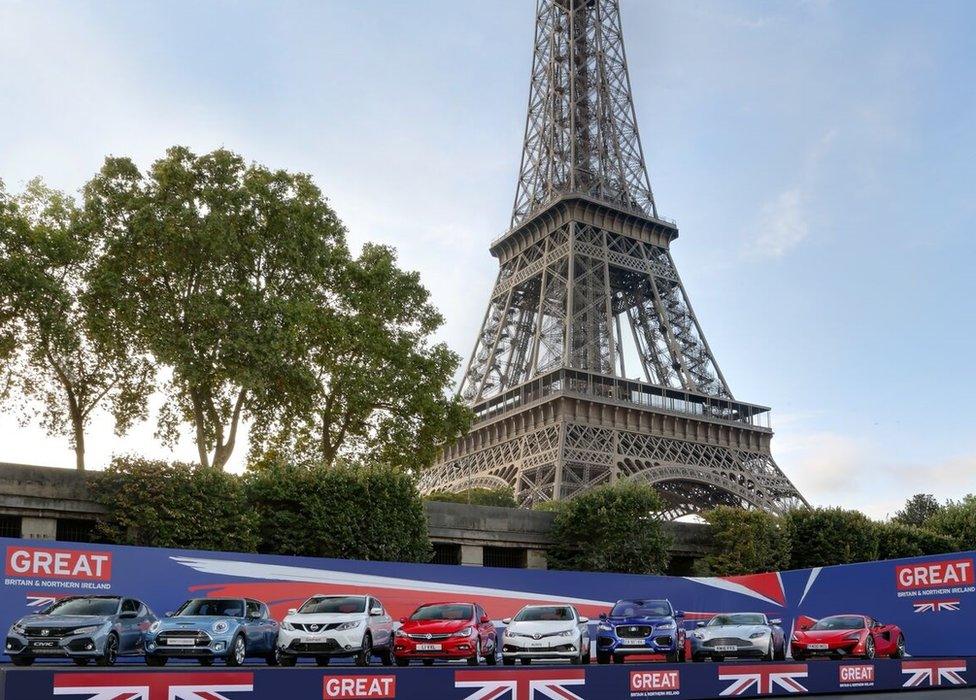UK auto's starkest warning yet
- Published
- comments

The UK car industry kicked off its own Tour de France today in the shadow of the Eiffel Tower on the sidelines of the Paris Motor Show.
Vauxhall, Nissan, Jaguar, Aston Martin, Mini, Toyota and McLaren models were lined up alongside each other.
However, this showroom was not for selling cars, but for issuing the auto sector's starkest warning yet.
It says only continued membership of the European single market can guarantee the success of the UK car industry.
The car industry is particularly sensitive to tariffs, as components and finished products can criss-cross over the Channel several times. Any additional frictional cost can throw sand in the engine of that business and its extended supply chains.
Membership of the single market ensures tariff-free trade, but comes at the price of freedom of movement of people - an unacceptable outcome for most who voted Leave.
The simplest and quickest way to leave the single market would be to adopt the rules of the World Trade Organization. That would place a 10% tariff on cars and components, which Hannu Kirner, European boss of Jaguar Land Rover, insists would have serious consequences.
"If we were to have tariffs, it would make imported components more expensive - that could cost UK jobs - and similarly if there were tariffs on exported cars - that would make us less competitive and mean fewer UK jobs," he says.
The alternative to that is a free-trade deal with the EU. But negotiations on that cannot start until the UK triggers the exit mechanism - Article 50 - which would then start a two-year process to leave. A new deal with the EU - such as Canada has - could take longer still to agree.
No guarantees
The UK car industry is doing fantastically well. Car production last month hit a 14-year high for August, but the chief executive of the Society of Motor Manufacturers and Traders (SMMT), Mike Hawes, warned against complacency.
"Don't be blinded by the good news that you're seeing," he said. "We are very concerned that the future state of the automotive industry and the success could be jeopardised if we are not in the single market."
Others dismiss this talk as yet more scaremongering. The UK is a huge market for German, French and Italian cars, and it would be mutually disastrous for EU to impose tariffs on UK exports or imports. That is probably true, but in the months and years of uncertainty ahead, global manufacturers need to make choices about where they invest.
Listening today in Paris was Mark Garnier, the Minister for International Trade, who said he understood the concerns, but did not seem able to offer much reassurance.
"We can't guarantee anything, but as I said, we are not going to provide a running commentary on what exit is going to look like," he said.
"But there are elements that are within the SMMT and the automotive sector and indeed any other sector that we need to protect and in the case of the automotive sector, those things we must protect and try to achieve is zero-tariff access to this market of 500 million people in the EU."
Today's demand to remain in the single market may be politically unrealistic, but the consequences of years of uncertainty, says the SMMT, could be only too real.